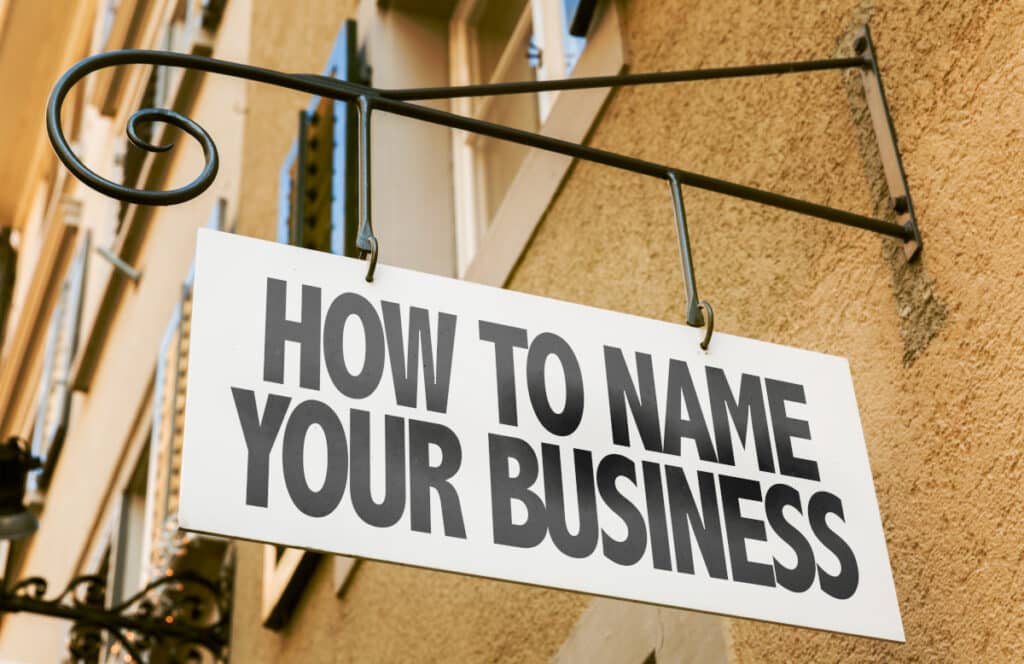You have an idea, a passionate purpose that you want to dedicate your career to. Time to go into business…now, what do you call it?
The temptation to name a business after yourself is real. It might feel like you’re creating a legacy for your family that can be enjoyed in the generations to come. It can definitely feel like the right thing to do. After all, it worked for Disney, Dell, Ford, and Armani, right? But, there are several things to consider when choosing a business name.
1. Memorability and Searchability
Having your last name as a business name – The Smith, Williams, and Bryant Law Firm, for instance – may not create much of a lasting impression. A memorable last name can be great for a business name if it’s easy to spell and search for or is somehow relevant to the products or services you want to provide. But what happens when you have a more unique last name, one that is difficult to spell, has multiple spellings, is spelled differently than it sounds, or is extremely common?
Well, when it comes to searching for, finding, and remembering businesses, this can be a curse. The business can become hard to find if people can’t remember or don’t know how to spell your name. It may also be harder to create differentiation. So, it’s probably a better idea to focus on making your business buzz-worthy with a unique and catchy name that people will fall in love with.
2. Employee Morale and Inclusion
Naming a business after oneself may be an attractive way to self-promote, but it can lead to morale issues among employees and hurt your company’s inclusivity. Growing a successful team that is invested in the company is difficult enough without creating the perception that there is no space for others to build their reputations. It may feel like every effort leads to recognition for the owner. Having a more generalized name makes it easier for everyone on the team to feel that their contributions matter.
Employees can quickly become disenchanted with working hard if they feel like their efforts only benefit one person and make them more famous or wealthier than everyone else. This sentiment also matters when it comes to training and internal promotions, as those within the company will have difficulty investing in something if they only associate it with one other person. Ideally, your company name will be something that your employees will be proud to say they are a part of. Creating a positive company culture means having everyone feel like they’re part of something bigger, not just helping one person achieve their objectives as the head of the organization.
3. Brand Equity
When a business is named after the founder, It’s easy for them to become the face of the organization. This has the potential to negatively affect brand equity in several ways. Without a well-developed brand identity, customers might not do business with you unless they meet you personally to decide whether they trust you.
We are all human, and make mistakes. When you name a company after yourself, the company’s reputation is inevitably tied to both your professional and personal choices.
This is particularly concerning for service-based organizations where trusting the brand is an integral element of customer acquisition. For most businesses, brand equity is also a key factor in customer loyalty. As a result, it’s important to consider what your brand stands for in a way that’s removed from yourself and in a fashion that will create a positive and memorable impression on potential customers.
4. Exit Plan and Mergers/Acquisitions
It can be difficult to exit a business that you’ve named after yourself. This often creates brand equity tied closely to the founder’s name. Then, when the time to exit arrives, it increases complexity because people may not want to lead or buy the business unless you remain for some period of time. After all, why would the internal members of your leadership team or a potential acquirer feel motivated to continue to grow a business with your name, especially if you are exiting?
Similarly, for established businesses considering mergers or acquisitions, having the founder’s name attached to the company can be a roadblock. Other companies may perceive that the customers are only tied to the business out of loyalty to the founder, which can make the business look too risky or less valuable. In short, it’s important when naming your business that you have an exit plan in mind.
Final Notes
There are exceptions to every rule, and there are also many, many terrible company names that are not related to the name of the founder. Your name is special and could work out to be an asset for your new venture. However, we suggest you keep these recommendations in mind while you brainstorm the best possible name for your business. Keep a long-term focus in mind and you will be well on your way!
We hope you get some value out of this article. If you’d like to learn more, feel free to reach out and set up a free consultation!


